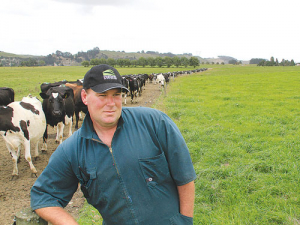The survey last month by Research First shows farmers’ overall satisfaction with their banks remains strong and stable, with an average 81% satisfied or very satisfied.
The twice-yearly survey started in 2015.
Federated Farmers vice-president Andrew Hoggard sees it as positive that sharemilkers’ satisfaction has improved to close to the industry average, given that “sharemilkers represent the next generation”.
“Some sharemilkers had been under quite a bit of financial pressure in the recent past but good on them for working hard to get good financial processes in place. It’s great to see their high levels of budgeting.
“As usual though, farming isn’t plain sailing. With particularly dry conditions early in the summer it’s going to be important that if conditions worsen farmers will make proactive decisions on the financial implications, and keep accountants and bank managers in the loop.”
New Zealand Bankers’ Association chief executive Karen Scott-Howman is pleased with the survey findings.
“It shows banks are continuing to work closely with their agri clients. That’s not surprising given the high level of bank support for the agri sector,” she said.
“Constructive relationships are essential in helping to deliver good results for farmers and their banks.”
The level of investment required in modern dairy farming stands out: the size of mortgages and the number of dairy farms with overdrafts is increasing.
In dairy and non-dairy sectors, 75% of the 480 survey respondents said they felt under the same pressure from their banks as six months ago, 8% said they felt under more pressure and just under 10% were feeling less pressure.
Four of five respondents have mortgages, with the average across all farms increasing slightly since May 2017 from $3.1 million to $3.2m. Dairy farms (89.7%) and sharemilkers (97%) are more likely to have mortgages than non-dairy farms (71.8%).
Mortgage interest rates have been stable (average 5.2%) and no respondent was paying more than 10% mortgage interest, for the first time since the survey began in May 2015.
Hoggard says it is encouraging that only a small minority of farmers feel they have come under undue pressure over the past six months, and this proportion (8%) has been easing back over the last 12 months.
The survey found 60% of farms this season have an up-to-date, detailed budget: sharemilkers show well in this (90%) but non-dairy farmers not so well.


















